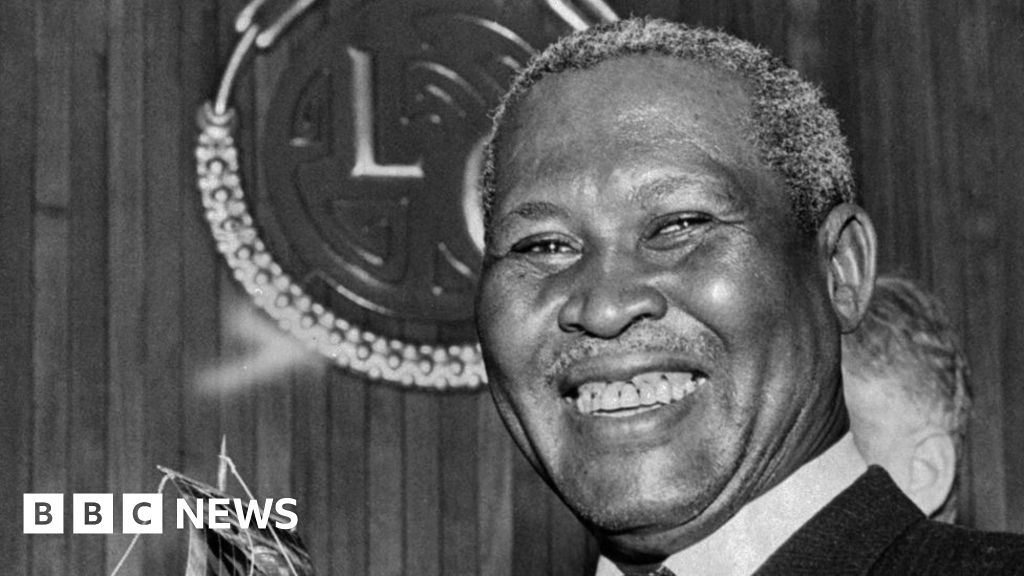South Africa Reopens Inquest into Nobel Laureate Albert Luthuli's Mysterious Death

A South African court has officially reopened the inquest into the death of Chief Albert Luthuli, a celebrated anti-apartheid activist and the first African recipient of the Nobel Peace Prize. Luthuli, who was the leader of the banned African National Congress (ANC) at the time of his death in 1967, garnered international acclaim for his relentless fight against apartheid. His passing, initially deemed an accident, has long been shrouded in suspicion and controversy, prompting renewed calls for justice from activists and Luthuli's family.
Luthuli was awarded the Nobel Peace Prize in 1960 for his efforts against the institutionalized racial segregation and oppression in South Africa. Activists, historians, and his family have always raised doubts regarding the circumstances surrounding his death, which was officially attributed to an accident on a railway line. A 1967 inquest concluded that Luthuli had been walking on the tracks when he was struck by a train, resulting in a fatal skull fracture. However, many believe this narrative serves to obscure the truth of his alleged assassination.
The National Prosecuting Authority (NPA) has indicated its intent to present new evidence aimed at overturning the findings of the earlier inquest, although no specifics about this evidence have been disclosed. Historical context reveals that the initial inquiry concluded there was no evidence of criminal wrongdoing by railway employees or any other individuals, a finding that many, including Luthuli's family, believe was a cover-up orchestrated by the apartheid regime. Sandile Luthuli, the grandson of the late chief, described the initial investigation as a whitewash and expressed hope for an unbiased examination by the judiciary to finally reveal the true events of that fateful day in July 1967.
During the hearing, which is expected to last nearly a month, the family is seeking clarity on two crucial fronts: the true cause of Luthuli's death and accountability for his demise. Sandile Luthuli articulated the family's desire for a corrected historical narrative, emphasizing the importance of debunking the myth surrounding his grandfather's death. He stated, Hopefully, through this inquest, we will be able to find both. If not, maybe the first one, being exactly the opportunity to correct the historical record and really debunk his myth of him being hit by a train.
Another of Luthuli's grandchildren, Albert Mthunzi Luthuli, remarked on the reopening of the inquest, noting the unfortunate passing of several individuals previously suspected of involvement in his grandfather's death. He criticized the Truth and Reconciliation Commission (TRC), which he felt had failed to adequately address the needs of families affected by apartheid violence, particularly by granting amnesty to perpetrators without full accountability.
At the time of his death, Luthuli was politically marginalized, restricted to his residence in Groutville, located in the KwaZulu-Natal province, which prevented him from engaging in political activities. His legacy, however, remains influential in South African history; aside from Luthuli, three other South Africans have received the Nobel Peace Prize: Archbishop Desmond Tutu in 1984, and Nelson Mandela alongside FW de Klerk in 1993. The reopening of the Luthuli case comes alongside another high-profile inquest into the murder of anti-apartheid lawyer Mlungisi Griffiths Mxenge, whose brutal killing in 1981 also remains unresolved.
The Mxenge inquest, initially scheduled to coincide with Luthuli's, has been postponed to June 17 after a brief preliminary session. Mxenge was stabbed 45 times and had his throat slit, a brutal act that underscores the violence faced by anti-apartheid activists during that turbulent era. A subsequent inquest in 1982 failed to identify his murderers, and only years later did a confession come to light from Butana Almond Nofemela, who admitted to killing Mxenge and several other ANC members. Though Nofemela and his associates were found guilty in 1997, they were granted amnesty under the TRC system before the case could reach a conclusive end.
In summary, the reopening of these inquests signifies a critical moment in South Africa's ongoing quest for truth and justice regarding past political violence. The outcomes could potentially reshape historical narratives and provide much-needed closure for the families of victims.




























